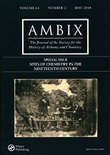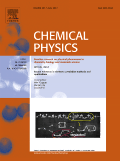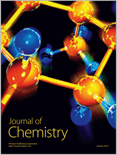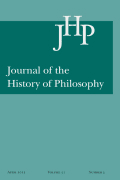
Ambix
Scope & Guideline
Advancing Knowledge at the Intersection of Science and Philosophy
Introduction
Aims and Scopes
- Historical Analysis of Chemical Practices:
Ambix publishes research that delves into the historical evolution of chemical practices, from ancient alchemy to modern chemistry, examining how these practices have transformed over time. - Cultural and Philosophical Contexts:
The journal emphasizes the cultural and philosophical dimensions of chemistry, exploring how chemical knowledge has influenced and been influenced by various cultural and intellectual movements. - Interdisciplinary Approaches:
Research in Ambix often adopts interdisciplinary methodologies, integrating insights from history, philosophy, literature, and science to provide a comprehensive understanding of chemical developments. - Focus on Key Figures and Milestones:
The journal frequently highlights the contributions of significant figures in the history of chemistry, as well as pivotal moments that shaped the field, offering biographical and contextual studies. - Environmental and Social Impacts of Chemistry:
Ambix critically examines the environmental and social implications of chemical practices, including topics related to industrialization, pollution, and the role of chemistry in societal change.
Trending and Emerging
- Interconnections Between Chemistry and Society:
Recent publications increasingly focus on the socio-political aspects of chemistry, exploring how chemical practices impact society and vice versa. This includes the examination of chemical disasters, environmental issues, and the role of chemistry in public health. - Gender and Diversity in Chemistry:
There is a notable trend towards exploring gender dynamics and the contributions of diverse groups within the field of chemistry. This includes studies on female chemists and the historical barriers they faced, reflecting a broader societal push for inclusivity. - Environmental Chemistry and Sustainability:
Emerging themes include the historical perspectives on environmental chemistry and sustainability practices, highlighting the evolution of chemical knowledge in response to ecological challenges. - Alchemy's Influence on Modern Chemistry:
A growing interest in how historical alchemical practices have shaped modern chemistry is evident. This includes studies that trace the lineage of chemical concepts from alchemical roots to contemporary scientific understanding. - Digital Humanities and Chemical History:
The integration of digital humanities methodologies into the study of chemical history is on the rise, with scholars employing digital tools to analyze texts and data, thereby expanding the scope of research in innovative ways.
Declining or Waning
- Traditional Alchemical Practices:
Research focused solely on traditional alchemical practices, without contemporary relevance or connection to modern chemistry, appears to be decreasing. This shift reflects a growing interest in more integrated narratives that connect historical alchemy to modern scientific practices. - Biographical Studies of Lesser-Known Figures:
While biographies of prominent chemists remain popular, studies focusing on lesser-known figures in chemistry are appearing less frequently. This trend suggests a move towards more impactful narratives that resonate with broader historical themes. - Narrowly Defined Historical Events:
Papers that focus on very specific or localized historical events in the field of chemistry are declining, indicating a preference for broader, more thematic studies that connect multiple events or contexts. - Traditional Laboratory Techniques:
There seems to be a waning interest in publishing detailed studies on traditional laboratory techniques without an emphasis on their historical significance or broader implications in the development of scientific thought.
Similar Journals

JOURNAL OF THE HISTORY OF BIOLOGY
Documenting the Interplay of Science and SocietyJOURNAL OF THE HISTORY OF BIOLOGY, published by Springer, stands as a vital academic resource devoted to examining the historical development of biological science and its philosophical dimensions. This esteemed journal, which has been in continuous publication since 1968 and encompasses research through 2024, is recognized for its significant contributions to the fields of Agricultural and Biological Sciences, and the History and Philosophy of Science, proudly holding a Q2 ranking in both categories as of 2023. With an ISSN of 0022-5010 and an E-ISSN of 1573-0387, it serves a diverse audience of researchers, professionals, and students interested in the interplay between biological advancements and historical context. The journal’s particular emphasis on interdisciplinary investigation provides a platform for innovative scholarship that enriches our understanding of not only the science itself but also its societal implications. While it does not currently offer open access, the rigor and reputation of the journal underscore its importance as a leading publication in the academic landscape of biological history.

JOURNAL OF THE CHILEAN CHEMICAL SOCIETY
Pioneering Discoveries in the Heart of Chile.The Journal of the Chilean Chemical Society, published by the Sociedad Chilena de Química, serves as a premier platform for disseminating significant research findings in the field of Chemistry. With an ISSN of 0717-9707, this journal has established its presence since 2003, providing open access to a diverse range of studies and advancements in this vital scientific domain. It currently holds a Q3 category ranking in Chemistry (miscellaneous) and ranks 196 out of 408 in the general chemistry category on Scopus, indicating its valuable contributions to the field. Through the journal, researchers, professionals, and students are encouraged to engage with cutting-edge research and foster collaboration among the scientific community in Chile and beyond. The society's commitment to excellence ensures that articles published reflect high-quality research, underpinning the journal’s role in shaping knowledge and innovation in chemistry.

Spontaneous Generations-Journal for the History and Philosophy of Science
Advancing Knowledge at the Crossroads of Science and PhilosophySpontaneous Generations: Journal for the History and Philosophy of Science is a dedicated publication focusing on the rich fields of history and philosophy within the scientific domain. Published by the Institute for the History and Philosophy of Science and Technology, this journal provides a vital platform for scholars, researchers, and students to explore and disseminate ideas that bridge the historical context and philosophical inquiries of scientific practices. With its commitment to open access, Spontaneous Generations ensures that groundbreaking research is widely available, fostering an environment of collaboration and knowledge sharing. Aiming to engage a diverse audience, this journal is pivotal for those looking to understand the evolution of scientific thought and its implications on contemporary issues, making it an essential resource in the academic community.

CHEMICAL PHYSICS
Unveiling Chemical Phenomena Through Innovative Research.CHEMICAL PHYSICS is a premier international journal published by Elsevier, dedicated to advancing the field of theoretical and experimental chemistry, particularly within the physical domain. Since its inception in 1973, this journal has served as a platform for disseminating cutting-edge research, fostering collaboration among researchers and professionals in the community. With a notable impact factor and recognized in the Scopus rankings, CHEMICAL PHYSICS holds esteemed positions in two categories: Q3 in Physical and Theoretical Chemistry and Q2 in Physics and Astronomy (miscellaneous). Published in the Netherlands, the journal features high-quality articles that cover a broad spectrum of topics, aiming to deepen understanding of chemical phenomena through innovative approaches. Although open access options are not currently available, the journal remains invaluable for researchers, students, and professionals seeking to stay informed about the latest developments in chemical physics. With convergence years extending from 1973 to 2025, CHEMICAL PHYSICS continues to be a significant contributor to the academic discourse in its field.

Jordan Journal of Chemistry
Exploring Frontiers: A Platform for Chemistry Discovery and Dialogue.The Jordan Journal of Chemistry is a prominent publication dedicated to advancing the field of chemistry in Jordan and beyond. Published by the Yarmouk University Deanship of Research & Graduate Studies, this journal serves as a platform for researchers, educators, and practitioners to disseminate their findings in a variety of chemistry sub-disciplines. Although currently classified in Q4 of miscellaneous chemistry and ranking within the 9th percentile according to Scopus, the journal plays a crucial role in fostering academic dialogue and collaboration in the region. With its ISSN 1814-9111 and E-ISSN 2079-7249, the Jordan Journal of Chemistry offers open access to researchers from diverse backgrounds, ensuring that critical research is both accessible and impactful. By bridging local studies with global scientific advancements, this journal is poised to contribute significantly to the growth and recognition of chemistry as a key scientific discipline in the region, with convergence efforts set from 2020 to 2024.

Journal of Chemistry
Fostering Collaboration in Chemical ResearchJournal of Chemistry, published by Hindawi Ltd, serves as a critical platform for advancing knowledge in the field of chemistry, particularly in its miscellaneous sub-disciplines. With an impressive 2023 Scopus Rank of #123 out of 408 and positioned in the Q2 quartile, this journal exemplifies a robust academic rigor that appeals to researchers, professionals, and students alike. It features articles related to innovative chemical research and developments, catering to a diverse audience eager to contribute to the growing body of literature in the chemical sciences. The journal has been operational from 2013 to 2024, and its Open Access model ensures that findings are easily accessible to a global audience, fostering collaboration and knowledge sharing. With a commitment to quality and relevance, the Journal of Chemistry continues to play a significant role in shaping contemporary chemical research and education.

Journal of the Korean Chemical Society-Daehan Hwahak Hoe Jee
Innovating Chemistry for a Global CommunityJournal of the Korean Chemical Society-Daehan Hwahak Hoe Jee, published by the esteemed Korean Chemical Society, serves as a vital platform for scientific communication in the expansive fields of chemistry and chemical engineering. Established in 2005, this journal showcases original research, reviews, and scholarly articles that contribute to the advancement of chemical sciences, promoting collaboration among researchers globally. Although it currently holds a Q4 category ranking in both Chemistry and Chemical Engineering on the Scopus platform, the journal remains committed to improving its standards and attracting high-quality submissions that reflect the latest innovations and discoveries. With an ISSN of 1017-2548 and an E-ISSN of 2234-8530, this journal provides invaluable resources for professionals, academia, and students dedicated to exploring novel ideas and fostering ongoing education in chemistry. Its location in Seoul, South Korea, places it at the heart of a vibrant scientific community, encouraging engagement and contributions that enhance the journal's profile within the international scientific discourse.

JOURNAL OF THE HISTORY OF PHILOSOPHY
Charting the Evolution of Ideas Through TimeJOURNAL OF THE HISTORY OF PHILOSOPHY is a premier academic journal dedicated to advancing the study of philosophical thought from antiquity to modernity. Published by Johns Hopkins University Press, this esteemed journal features a range of scholarly articles that delve into the historical context, development, and impact of philosophy across civilizations. With an ISSN of 0022-5053 and an E-ISSN of 1538-4586, it boasts an impressive rank of Q1 in Philosophy as of 2023, recognizing its influence and contribution to the field. The journal, which has been publishing since 1975, offers insights that are invaluable for researchers, professionals, and students dedicated to the exploration of philosophical traditions and their legacies. Although it operates under a subscription model, the rigor and depth of the research published make it an essential resource for anyone interested in philosophical inquiry. With its commitment to scholarly excellence and critical discourse, the JOURNAL OF THE HISTORY OF PHILOSOPHY serves as a vital platform for new ideas and connections in the realm of philosophy.

Canadian Journal of Chemistry
Pioneering Original Research in Chemical StudiesWelcome to the Canadian Journal of Chemistry, a prominent publication dedicated to advancing the study of chemistry through original research and critical reviews. Published by Canadian Science Publishing, this journal has been a cornerstone of chemical research since its inception, covering a broad spectrum of topics within the field, including catalysis, organic chemistry, and general chemistry. With an ISSN of 0008-4042 and E-ISSN of 1480-3291, it provides a vital platform for researchers, professionals, and students to disseminate their findings and engage in scholarly discourse. Impact Factor is currently in development, with the journal classified in the Q4 category for catalysis and Q3 for miscellaneous chemistry fields, signifying its evolving contributions to the scientific community. The journal operates without an open access model, which ensures a rigorous peer-review process while maintaining subscription access for institutions and libraries. Located in Ottawa, Canada, the Canadian Journal of Chemistry continues to provide an invaluable resource for those dedicated to the scientific pursuit of chemistry, making significant strides in fostering interdisciplinary approaches and innovative research methodologies.

JOURNAL OF THE CHEMICAL SOCIETY OF PAKISTAN
Connecting Local Insights with Global Impact.JOURNAL OF THE CHEMICAL SOCIETY OF PAKISTAN is a premier academic journal published by the Chemical Society of Pakistan, focusing on advancing the field of chemistry through rigorous research and scholarship. Established in 1996, this journal aims to disseminate high-quality research articles, reviews, and insights pertaining to various subfields of chemistry, making substantial contributions to both local and international scientific communities. With a current impact factor placing it in the Q4 category, the journal continues to foster discussions on emerging trends and innovations within the discipline. Additionally, it holds a Scopus rank of #305 out of 408, highlighting its growing influence despite being positioned in the 25th percentile. Although it is not an open-access journal, it provides a crucial platform for researchers and professionals in Pakistan and worldwide. The JOURNAL OF THE CHEMICAL SOCIETY OF PAKISTAN serves as a valuable resource for students, educators, and industry professionals alike, facilitating the exchange of knowledge and promoting advancements in chemical sciences.